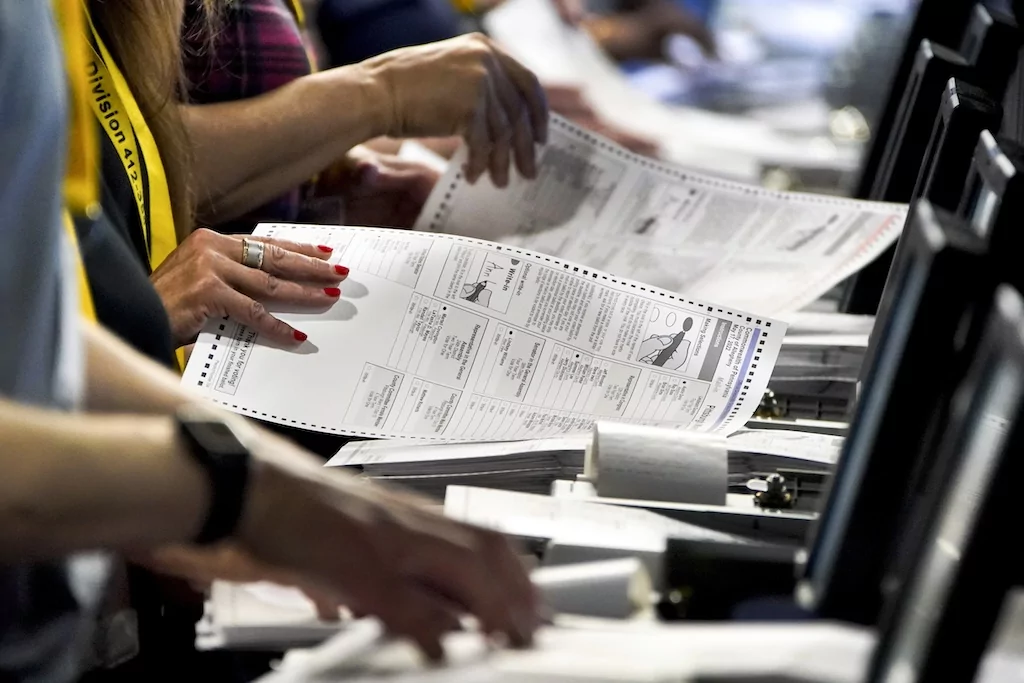

When election results pour in from across the country Tuesday evening, there will likely be various close and hotly contested races that could end in a recount.
The presidential race between former President Donald Trump and Vice President Kamala Harris will likely come down to seven states considered “toss-up” contests, and any of those states’ results could end up in a recount. Here are the laws for recounts in each of the key battleground states.
Arizona
In the Grand Canyon State, the law for mandatory recounts only goes into effect if the top two candidates are within 0.5% of each other in the final results. The threshold is higher than the previous 0.1% required in 2020, thanks to a law passed since the last presidential election.
If the race ends up in the margin for a recount, one will automatically be triggered by a court order.
Georgia
In the Peach State, there are no automatic recounts, but a candidate may request a recount under certain circumstances.
A candidate may request a recount if the margin is within or equal to 0.5% between the leading finishers of a race. The state’s laws also allow for the secretary of state or an election official to request a recount if there is a “suspected error or discrepancy,” according to the state.
Michigan
In the Great Lake State, there are provisions for both automatic and requested recounts.
An automatic recount will occur if the margin between the first-place candidate and the second-place candidate is 2,000 votes or less.
A candidate may request a recount if they have “a good faith belief that they would have had a reasonable chance of winning the election,” and they must specify which precincts they seek to have recounted and pay a deposit for each precinct. The deposit depends on the candidate’s margin between themselves and the winner.
Nevada
In the Silver State, there are no automatic recounts, but a candidate may request a recount within three working days of the statewide canvass. The candidate must pay a deposit for the recount, which is only refunded if the recount ends up changing the result of the race.
Once the request has been made, the recount would have to begin within five days, and once it does, it would need to be completed no longer than five days after.
North Carolina
In the Tar Heel State, a candidate may request a recount if the margin between the winner of a race and second place is at most 0.5% or 10,000 votes, whichever is less.
A candidate must request the recount by 12 p.m. on the second business day after the statewide canvass is completed. The recount costs are covered by the state.
Pennsylvania
In the Keystone State, there are provisions for both mandatory and requested recounts.
A mandatory recount occurs in the state if the margin between the top two candidates falls within 0.5%.
A candidate may not request a recount, but three voters in the commonwealth may request a recount no later than five days after the state canvass if they allege fraud or error. The recount cost must be covered by the petitioners but will be refunded if substantial fraud or error is found.
Wisconsin
In the Badger State, a candidate can request a recount within one business day of the canvass. However, if the margin of victory is more than 0.25 percentage points, then the petitioner must pay for the recount.
CLICK HERE TO READ MORE FROM THE WASHINGTON EXAMINER
As outlined by federal law, states must certify their results and electors to the Electoral College by Dec. 11, 2024.
The Electoral College will meet on Dec. 17, 2024, and a joint session of Congress will certify the vote of the Electoral College on Jan. 6, 2025.







